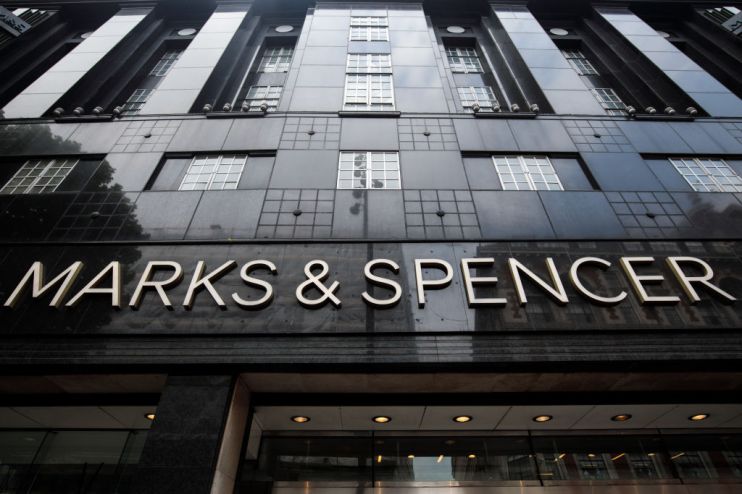Marks & Spencer profit dented as Ocado joint venture books £0.7m loss

Marks & Spencer’s half-year profit slid on Wednesday after it said its joint venture with online grocer Ocado had suffered a £700,000 loss.
In half-year results to 1 October, M&S said its group profit before tax was £205.5m, versus a £269.4m sum the previous year.
Bosses pointed to a lack of business rates relief compared to last year and the fact that earnings from Russia no longer contributed to group results, as well as the loss-making Ocado.
Ocado has struggled to maintain its pandemic-era momentum in recent months, with shoppers adding fewer items to their baskets after the reopening of society following Covid lockdowns.
M&S Food saw sales buoyant by 5.6 per cent in the period, while its once-beleaguered Clothing & Home arm was heralded by the retailer as the “stand out”, with sales up 14 per cent.
However, operating profit in its food business declined, sliding to £71.8m versus £124m last year. M&S pointed to a combination of investment to retain loyal shoppers and monster increases for operating costs.
The grocer said it did not pass through the full effect of inflation – which stood at 11 per cent in this time – to customers.
Market conditions were expected to become even more challenging in the months to come, bosses warned.
However, M&S said “far-reaching changes made over the past few years” to the group would provide it some insulation from a “gathering storm.”
Operating profit for M&S’ fashion and home division increased by a third to £128.4m, continuing the retailer’s turnaround narrative for this arm.
“Uncertainty is at its maximum,” M&S boss Stuart Machin told reporters on Wednesday morning, yet despite this customers were still determined to have a good Christmas.
Customers were eager to prioritise the festive period, despite food prices sky-rocketing over the past year, Machin said, with M&S keen to “maximise” that enthusiasm.
According to the retailer’s research, M&S customers had already bought 30 per cent of their Christmas gifts.
Shoppers were “still buying what they want” across the retailer’s apparel and homeware segment, its co-chief executive officer, Katie Bickerstaffe, told journalists.
However, the retailer was readying itself for households to be smacked with further inflationary pressures in the early part of next year, with millions of Brits grappling with high energy bills.
Despite a torrid cost of living crisis causing Brits to pull back on spending, analysts said M&S’ latest batch of results proved there were still waves of “super-resilient” shoppers happy to fork out for the right offering.
“M&S has done a valiant job of keeping the tills brisk and virtual baskets filled up with the right product mix, offering value ranges interwoven with treats,” Susannah Streeter, senior investment and markets analyst, Hargreaves Lansdown, said.
One huge challenge facing M&S in the gloomy new year would be “shifting its image from an occasion shop to a weekly shop,” according to Orwa Mohamad, analyst at research firm Third Bridge.
“There is a risk that large numbers of infrequent shoppers simply drop the brand from their repertoire as they trim back their discretionary spend,” Mohamad added.
The London listed firm’s share price had dropped by more than four per cent in trading on Wednesday afternoon.
M&S is not the only supermarket admitting its margins have come under pressure from actions to keep prices competitive for customers amid surging inflation.
Last week, Sainsbury’s said its half-year profit had taken a hit by eight per cent, to keep prices competitive for customers and boost pay for staff.
Discount retailers Aldi and Lidl have taken further slices of market share in recent weeks, as shoppers look to make their weekly shops more affordable in the face of 40-year high levels of inflation.